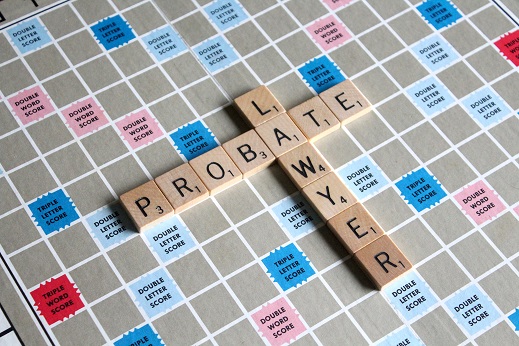
There’s an old saying: Where there’s a will, there’s a relative. Like many old sayings, this one is nearly always true.
Still, what if someone dies, leaving no heirs to take title to a house left behind? In some cases, wills are found, but they either rule out or just fail to name any currently living heirs. What happens to the property?
If all else fails, the state has the right of escheatment. The government may ultimately take title to assets of deceased people who pass away without leaving any known heirs or instructions.
But again, this is a rare occurrence. Whether there’s a will or not, there’s almost always a way to find an heir.
Handling an Intestate Estate
If a good-faith search fails to turn up a will at all, the court must declare the estate intestate (without a will). This is quite common. Most people — reportedly 68% in the United States as of 2020 — die intestate!
In every one of these cases, an intestate estate notification must be published according to state law provisions, so any potential claimant might come forward. Meanwhile, the estate’s administrator turns to the state’s rules on heirship. This involves a search for anyone related to the deceased, in the order they are listed in the state’s law: spouse, offspring, parents, and so forth.
In that very rare case where no viable heir can be found, the escheatment process begins. Escheatment “arose for simplicity’s sake of listing the state as the ultimate taker,” explains John V. Orth of the University of North Carolina School of Law. So, “the state became in that sense – and in that sense only – the ‘last heir.’”
“Notoriously,” adds Prof. Orth, “An heir has no rights in the property while the ancestor lives, only a ‘mere expectancy,’ but the state has a right all along, a paramount title…to real property.”
Finding Heirs Who Aren’t Apparent
If probate courts need help finding out who should inherit, the county may have a public administrator who, working with local police, can deploy investigators to the home of the deceased, to look for information. Additionally, digital tools help today’s probate administrators track down elusive heirs.
And there’s more: a whole profession built around tracing heirs. Reputable heir-tracing firms work with professional genealogists to identify and locate heirs for probate cases. Typically, they charge by the hour. A quick search for genealogical heir-tracing firms shows fees up to around $200 hourly, with a probate case taking some 15 or 20 hours of work. An estate administrator would request their fee proposals, then obtain a court order to approve the estate’s hiring of a specific tracing firm.
Some beneficiaries inherit homes from trusts. In cases where the trust beneficiaries are not immediately found, too, the estate could pay a genealogical tracing firm.
All states have provisions ruling out bad actors as viable heirs. An extreme case would involve someone convicted of killing the homeowner. Once convicted, that person has no right to inherit the property — even if no other heirs are found and the home must escheat. Similarly, statues provide for escheat of property that was illegally obtained, and no rightful title holder is found.
The Weird World of Percentage-Based Heir Tracers

Move over, ambulance-chasers. Commission-based heir-tracing wins the award for the most morbid practice of law. Consider the heir hunters, sifting through probate notices, looking for heirs who might not know about some wealthy relative’s death. They contact the heirs, and promise to go after the windfall — for a finder’s fee. This commission is a percentage (often around a third) of the inheritance. The heir, unable to see the details of the estate and claim the assets directly, goes along with the proposal.
Next, the legal collaborators take over and contact the probate administrator. The law firm introduces itself as the heir’s agent, to get first dibs on the assets and shut out other firms. Sometimes, the other firms even agree to shut themselves out of the competition, for a cut.
These tactics degrade the legal profession, and courts are cracking down. For example, the California Appeals Court in Estate of Molino decided that a licensed private investigator offended public policy by taking a 35% finder’s fee from the half-siblings of a deceased person.
The U.S. Department of Justice is also monitoring the practice, and has launched criminal investigations into price fixing, bid rigging, and other anticompetitive activities in the heir location industry.
Probate courts are on the lookout for percentage-based heir hunters. Some only authorize estate administrators to hire through flat fees. Probate courts have also modified or voided commission-based agreements as counter to state law or public policy.
Will the Real Heirs Please Stand Up?
A person may, of course, step up and ask to be considered an heir to an intestate estate. In certain cases, state law might allow the estate’s administrator to bypass the formal order of succession to enable a fair outcome. In any case, the place to start is with an application for the determination of heirship. The application may be filed by the administrator of the estate (or someone submitting an application to have an administrator appointed), a creditor, or anyone who believes they are an heir.
Public notice requirements follow the filing of an application. For example, here are the they are in the Texas Estates Code.
If you placed a lien on an escheat home, you’ll be encouraged to know that states usually make good on the former owner’s debts. Banks that hold mortgages secured by an escheat property, medical providers with liens, and workers with mechanics’ liens can all petition for judgments to recoup funds, as long as they created their security interests in the house before it escheated.
State laws dictate the time allowed for estate administration to begin once a person dies, and whether or when heirs or creditors have a set period to make their claims. These provisions vary by state and they can change. Current state law must always be checked. Of course, stepping up as promptly as possible is the best policy.
If You Snooze, You Lose?

In California, the state’s ownership cannot be contested after five years. An heir who steps up earlier may claim assets, as long as that person doesn’t gloss over the existence of other heirs, as noted in 2000 by California’s Appellate Court in Estate of McGuigan.
Obviously, this first-come-first-served rule “can lead to seemingly harsh results,” the McGuigan court admitted. But the court invoked prior case law holding that probate courts need not delay the distribution of assets, as missing heirs “do not have a vested interest in an escheated estate during the state’s five-year waiting period.” Thus, when the court accepts a legally viable heir, the title is conveyed to that person with an administrator’s deed. And that’s that. Claimants who step up later cannot challenge the deed conveyance.
Each state handles escheatment with its own legal framework. A lawyer in the county and state where the property is located can advise a potential claimant on how to navigate the local probate system.
Buying the Empty Home
As the owner of an escheat home, the state can convert the property into a public good, or sell it on the market. A real estate agent should be able to tell you about vacant properties — whether the homeowners passed away or simply walked away, leaving the houses owned by banks.
☛ If you are seeking, or have found, a foreclosed home to for sale, see our guide to buying a foreclosed home.
Empty houses come with challenges. Hopeful buyers usually need to accept them in as-is condition. This can mean hidden defects and unknown damage. Insurers might be wary about taking on the associated risks, with good reason.
Some seasoned investors successfully invest in vacant properties. Their real estate holdings are typically large and diverse enough to absorb the risk. But all buyers are well advised to consult with a real estate attorney and a mortgage expert — both to find out how a lender will handle the underwriting process, and to anticipate the risks in buying a vacant house.
Supporting References
Tx. Code § 202.051
Va. Code § 55.1-2435
Va. Code § 55.1-2436
Estate of McGuigan, 83 Cal. App. 4th 639 (2000).
The Conversation: 68% of Americans Do not Have a Will (May 2020).
John V. Orth, University of North Carolina School of Law: Escheat – Is the State the Last Heir? (Autumn 2009).
Gerry W. Beyer, Wills, Trusts & Estates Prof Blog: The Mystery of the Millionaire Hermit (Jul. 2020).
Photo credits: Andrea Piacquadio, via Pexels; Melinda Gimpel and Markus Winkler, via Unsplash.
